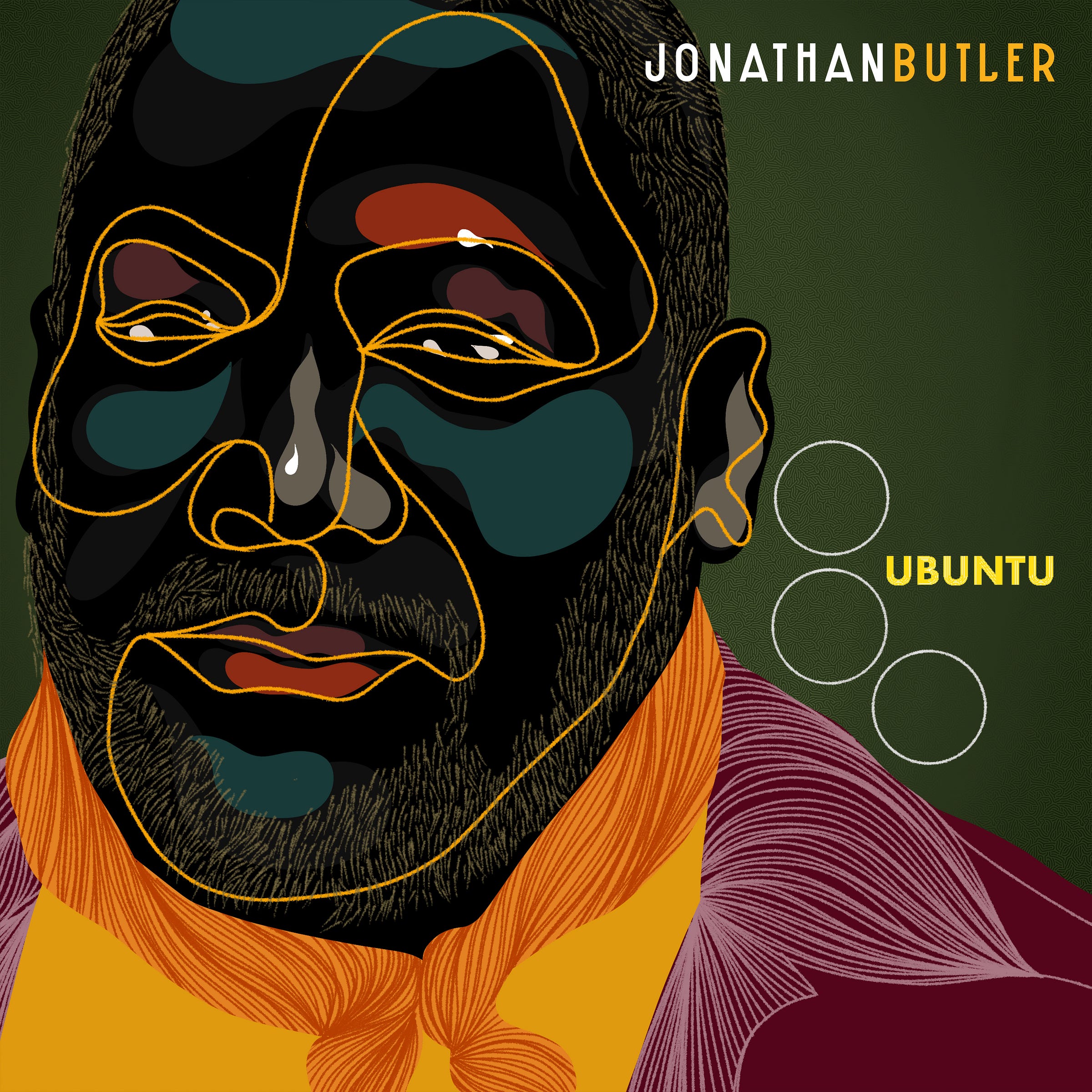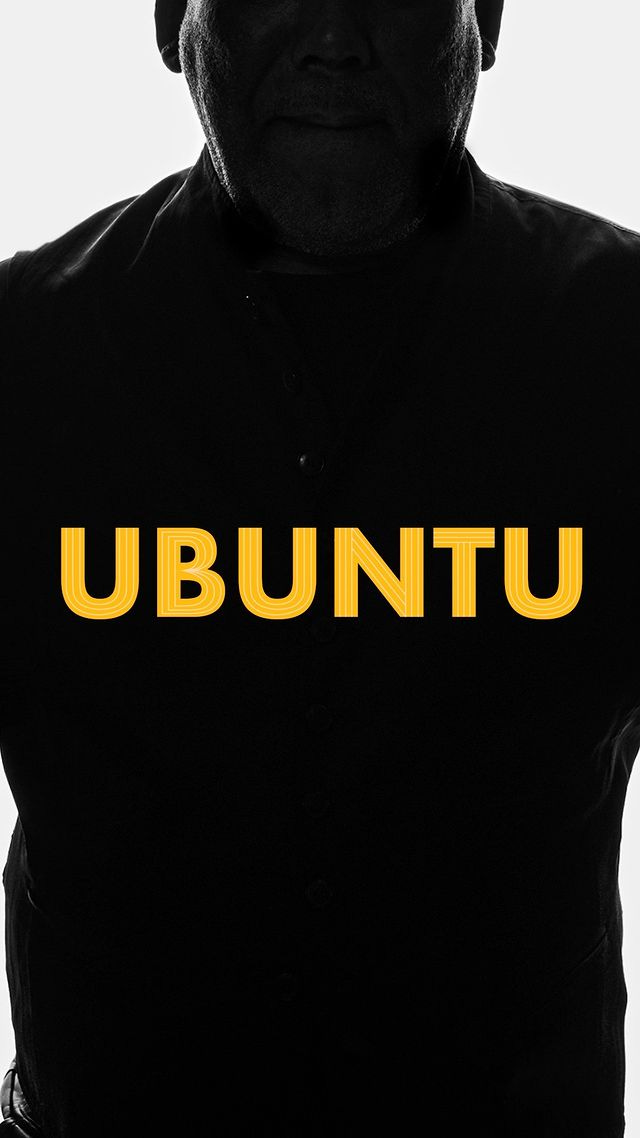So Beautiful, So Beautiful…Rainbow Nation: Jonathan Butler Reaches for a Greater Love
South African artist enlists Marcus Miller, Stevie Wonder, and Keb’ Mo’ for his 28th album, full of uplifting songs about love, peace, and the spirit of ‘Ubuntu,’ unity

“…‘I am me because of you. You are you because of me. We are not separate. We are connected.’ Sometimes, it is something to seek. Other times it is clear to see. We are One People. All the tribes from Zulu to Gaza embrace this — passed on from generation to generation — and shared amongst every tribe in every village. Sharing my life with you is Ubuntu.”
Everything in Jonathan Butler’s upcoming recording, Ubuntu, plays like a double-platinum album, full of thought-provoking lyrics, pleasant rhythms, radio-ready hit singles, and righteous gospel-to-jazz musicianship.
The April 28, 2023 release features 11 tracks — mostly originals and originally arranged covers — inspired by a return to the artist’s humble roots, supremely conceived and built on the superstar-power of the South African’s multi-instrumental, multi-dimensional scat-vocal prowess, with bassist Marcus Miller at the producer helm, as well as special guest artists Stevie Wonder (“Superwoman [Where Were You When I Needed You]”) and Keb’ Mo’ (“When Love Comes In”).
By all accounts, the Southern California-based singer-musician-composer has never sounded better, doing what he does best — turning songs of love flecked with accessible jazz, vocal aerobatics, and pop-gospel fruition into everyone’s touchstone.
In 1987, he crossed over big-time with the pop standard, “Lies,” marrying funky melody, hooks, and catch-beats with stand-alone, standing-ovation slip-knot scatting that jazzers and Top 40 devotees could both dive into.
He threatens to do it again on “Rainbow Nation,” the sixth, elevated track off Ubuntu…the one all the attention goes to.
“Rainbow Nation” — a message song “about the ongoing battle of Equalizers vs. Dividers” — is the perfect amalgamation of Butler’s signature musical moves, a seamless blend of his natural affinity for smooth, soulful grooves with a heart for something more, something deeper — a greater, universal love for all of humankind.
“I am me because of you. You are you because of me. We are not separate. We are connected.”
In his own way, the self-taught (“Stevie was my Berklee, my musical guru”) musician reaches out to touch all the tender, poignant, triumphant, spine-tingling pulse points in the human experience, from uplifting homily to captivating, “so beautiful” music that flows out of his core, like rapture.
“Marcus came into this project in a season when I didn’t think I had anything to say. I had come to South Africa a few weeks ahead of my annual Jonathan Butler Safari to record a few things with local musician friends. I thought, ‘I’m back home looking for myself. I don’t know what I’m supposed to write or say. I can’t hear it.’ Marcus had come early, too, and we were sitting in the bush when he told me, ‘It’s great that you can realize this. A lot of artists can’t come to terms with that when it happens to them.’ My wife said, ‘Let Marcus drive the bus.’ I’m so glad I did. I really needed to focus on the music that makes me who I am.”
He was definitely on another level when he and Michèle Vice-Maslin co-wrote this gem of a master tune, more a moving mantra than a lyrical story, one meant to sway hand-in-hand to, shore to shore.
His voice blends into the many, sharing sacred space with those of the Hawaiian Island Polynesians and the First Nation tribes of the Americas, all the way to the South African families in the shanty towns of Butler’s youth, and the ancient philosophy that ties us together.
His gift, Ubuntu.
A South African philosophy embodied and sustained by Archbishop Desmond Mpilo Tutu, “which states, ‘I am me because of you. You are you because of me. We are not separate. We are connected.’ Sometimes, it is something to seek. Other times it is clear to see. We are One People. All the tribes from Zulu to Gaza embrace this — passed on from generation to generation — and shared amongst every tribe in every village. Sharing my life with you is Ubuntu.”
Listen to the “light and love” of “Rainbow Nation” first, feel oceans swell and the earth shudder, as Butler and his band unleash the divine.
The tune will have you coming back for more.
Butler seems to leave himself, channeling the spirits of other First Nation tribes, the Indigenous, past to present. Listen with your whole heart, and you may very well hear the late Israel “Iz” Kamakawiwoʻole (“Over the Rainbow,” “White Sandy Beach of Hawai’i,” “In This Life”) with the Mākaha Sons of Niʻihau and ukulele maestro Jake Shimabukuro fronting Hilo’s April Merrie Monarch Festival.
It's that powerful.
“Beyond Jonathan being such a double threat as a singer and guitarist, I admire how unafraid he is as a man to be romantic. Now, I want everybody to hear Jonathan’s new music. I’m very proud of it…so satisfied that it exists. Our whole creative process was a journey.” — Marcus Miller, producer, bassist
Even when Butler says nothing at all, but just plays what he feels, the result is transcendent. He wrote the instrumental rain, “Peace in Shelter,” with Yellowjackets keyboardist Russell Ferrante, featuring Butler’s violinist wife Nadira Kimberly Scruggs, out there stirring clouds from blue skies.
The dance they do together — string upon string, love overlapping, everlasting — will sweep you away to a place where war, hate, and division can’t go. A lovely unraveling.
The Ubuntu songs themselves float and bounce on a cushion, a pillow of a waltz, as if here for just a fleeting moment, then gone.
“In Cape Town, I left school after kindergarten… I never had music lessons, vocal teachers or formal training. Stevie was my Berklee, my musical guru. His social standing in the world really impacted me as an artist who could speak of the times. To have him love my version of his song and to play on it is just crazy.”
“Superwoman (Where Were You When I Needed You)” is a Stevie Wonder classic from 1972, wonderfully conflagrated, with the man himself chiming in on harmonica. Wonder loved Marcus Miller’s arrangement so much, he texted Butler about it.
“He left a message on my phone at 7:30am saying, ‘I just prayed with my grandchildren, sent them off to school then listened to your version of ‘Superwoman.’ I love what you did. Thank you for giving me such a gift this morning,’ I forwarded that message to all of my family and friends!”
Butler leans into Wonder’s well-worn, velvety grooves, the highs, the turnarounds, the back-and-forth rhythmic undulation — a body disheveled and untethered, smooth, rounded syllabic figures, with an African-classical flair. Over and under all that, Ntokozo Mbambo lights upon an ascending, shearing wordless vocal line, bassist Marcus Miller deepens the tribal groove with taut, vibratory precision, and Scruggs embellishes with luscious, ringlet foresight.
And of course, Wonder leaves his indelible stamp of approval in the purple mountain majesty fade.
“Ubuntu,” the title track by Butler and Miller, pairs the two of them nicely — vocals to bass, scat to bump, water to wine — in an instrumental parsed with strains of African that seem to embody the very essence of Desmond Tutu’s oft-referenced philosophy.
“The death of George Floyd polarized or awakened musicians I know. Some spoke out, others did not, claiming, ‘I’m an artist not a politician!’ My song ‘Our Voices Matter’ came out of that. I felt like, ‘We just saw a modern-day lynching on TV! I have to use my platform to speak out.’ I’ve always been a risk taker. You’re either silent and complicit or you speak out. After all I’d been through in South Africa, I never thought I’d experience racism in America. But I got that wake-up, call, too — in a Whole Foods store, where a couple who saw me wearing a George Floyd shirt told me to ‘Go back to my f’in country!’”
When Butler sinks into the scatting, matching Miller’s bass-popping decrees note for note, “Ubuntu” turns into a work of art. Russell Gunn’s one-man horn section’s just icing on that cake.
“When Love Comes In” sees blues artist Keb’ Mo’ joining Butler on idyllic vocals, as well as electric guitar in this duet that derives its juice from personality, kismet answer-and-calls, and sweet, sweet harmonies. Tony Soll fills the choir to the rafters on backup. A great Tommy Sims cover, with everyone piling in to extract meat from the bone, giving more than charted.
Marcus Miller’s bluesy “No Tomorrow” highlights Butler as a crooner who can hit high-low notes and make them crackle and spark, as well as his finesse on acoustic strings. An intimate, slow-jam cheek-to-cheek that sounds sensually, fondly familiar; a get down in the sheets mood off Butler’s knowing, needing voice alone.
The light, frothy “Bon Appétit” sounds like it’s from the past, lost in the exploratory ‘70s-‘80s, when George Benson was just getting a feel for covers and elevator music had a mind of its own. Butler’s instrumental confluence of recurring acoustic guitar riffs, fold-over bass, piano, wordless, harmonizing vocals/scat-bursts, and a little synth oozes Al Jarreau “Moonlighting” chill on a Sunday morning reading the news.
“Coming Home” is a bright summer party day, effusive and vibrant with voices interacting over and under a straight-forward contemporary jazz piece — plush guitar and horns (Don Vino, alto sax) — coming together for a festive effect. Jonathan Butler’s bridge-like melody, amplified by his cello-esque guitar configurations, threads the needle throughout.
This Butler and Miller arrangement could go into the next “Goodbye Girl” rom-com sequel.
The music does feel like coming home.
“Silver Rain” hopscotches off an upbeat reggae beat, funked-up underbelly, dynamic Butler (+Jodie) vocals and grinding guitar picks. The collective R&B cover (Miller, Eric Clapton, Kim Owens, Bill Withers, and Joey Kibble) rides on Butler’s gift for hyping a song into such a crowd favorite, that, by the end, everyone is on their feet, arms in the air, singing along, screaming for more.
His raspy, withering voice, shades of his hustling “Lies” swagger…game over.
“Springtime in Afrika” takes graceful, ginger steps toward the rising sun and all its resultant warmth. Buoyant on Butler’s acoustic guitar, keys, beat, bass, and atmospheric vocals, and Miller’s fretless foraging bass, the tune does a pass-through of a Pat Metheny kind of contemplative jazz. This one’s a guitar-and-bass showcase, with soft vocals serving as the fluttering, gauzy aftermath of a new morning in Africa and beyond, reborn…the musical singes of connection.
The bonus acoustic version of “Our Voices Matter” sends the social message of love, peace, and unity home. It’s a final tune you hear with your hand over your heart, moving to every war-torn lyric. It’s Butler at his finest, honing in on the core, the flesh and bone and fallout from ignoring the inner voice that says quietly, “stop.”
It’s him singing, making poetry of every stanza that strains his voice and firms his resolve, accompanying himself on acoustic guitar and a faint train of percussion.
It’s an exquisite hello, goodbye, and see you again, friend…another memorable send-off from Jonathan Butler and Michèle Vice-Maslin.
“Our voices matter, they matter, matters to you, it matters to me. Our voices matter, they matter, we’re all part of this great melody. Like tone and time, our souls align…”
Ubuntu’s (Mack Avenue Records) upcoming release date coincides with South Africa’s Freedom Day, April 27, a public holiday celebrating the first post-apartheid elections allowing blacks to finally vote in 1994, and the beginning of the end of the country’s shameful, systemic racism.
Artist quotes from a bio and press release, c/o Missing Piece Group.
LALELA Children
Read more about board member Jonathan Butler’s work with LALELA, a charitable organization offering educational arts programs to better the lives of at-risk children in Sub-Saharan Africa.




